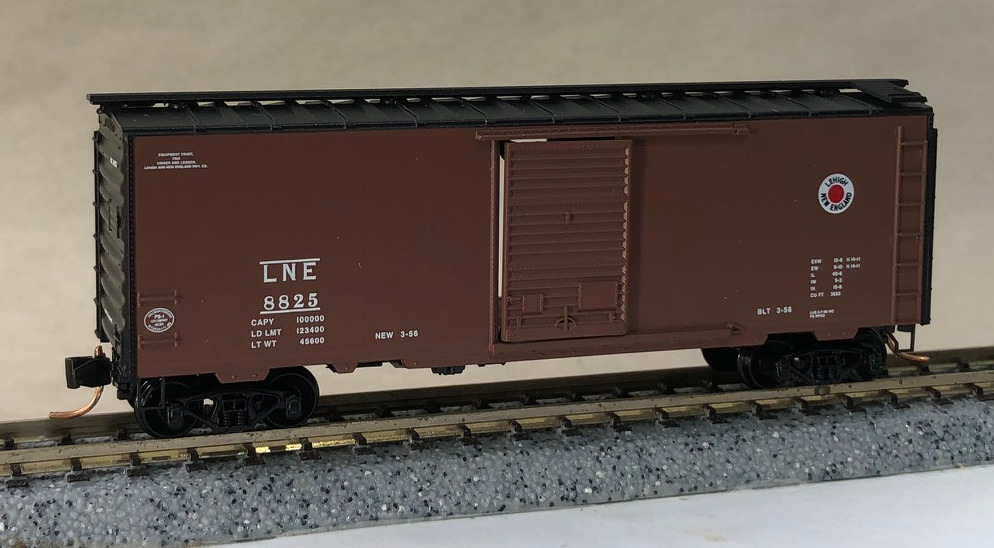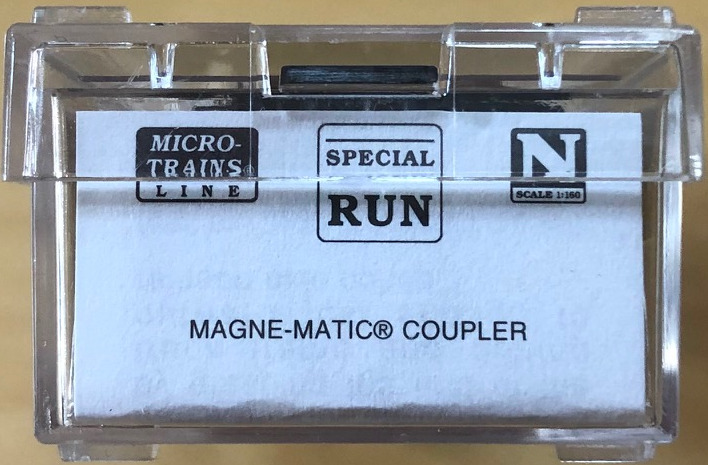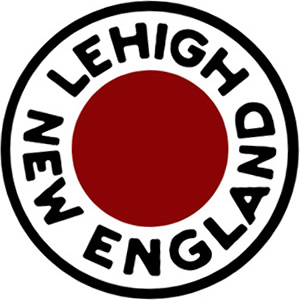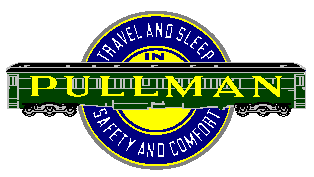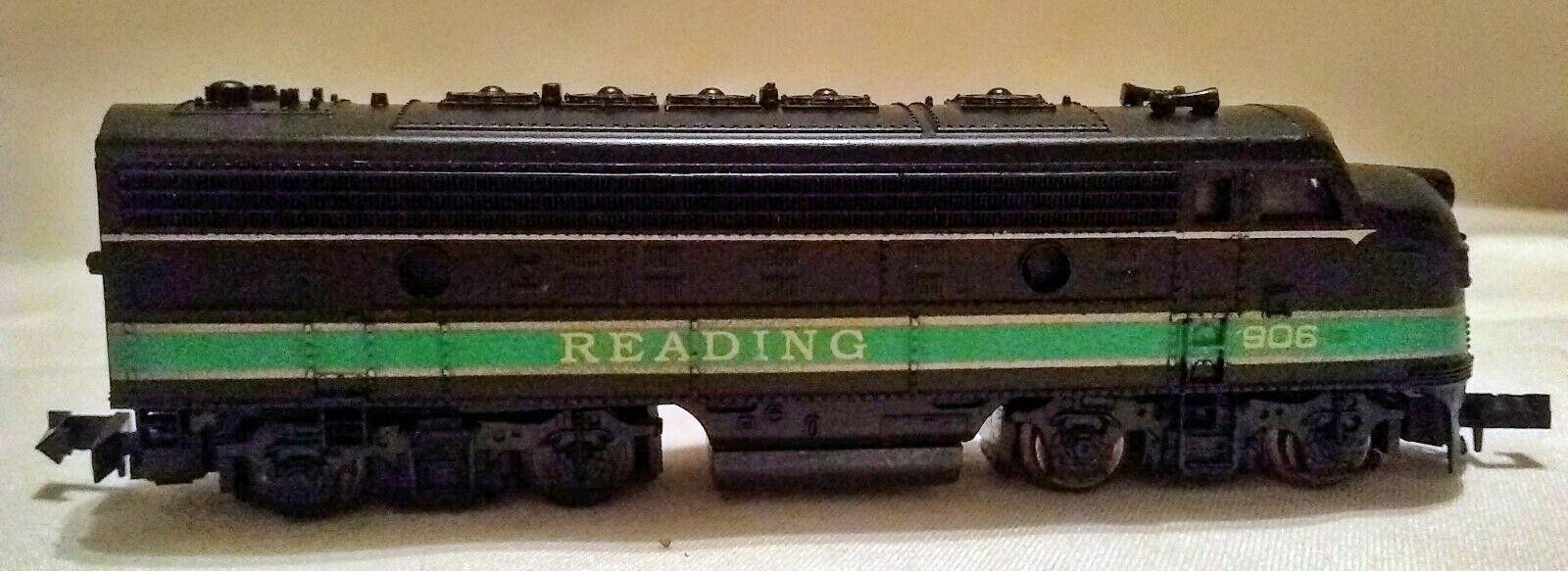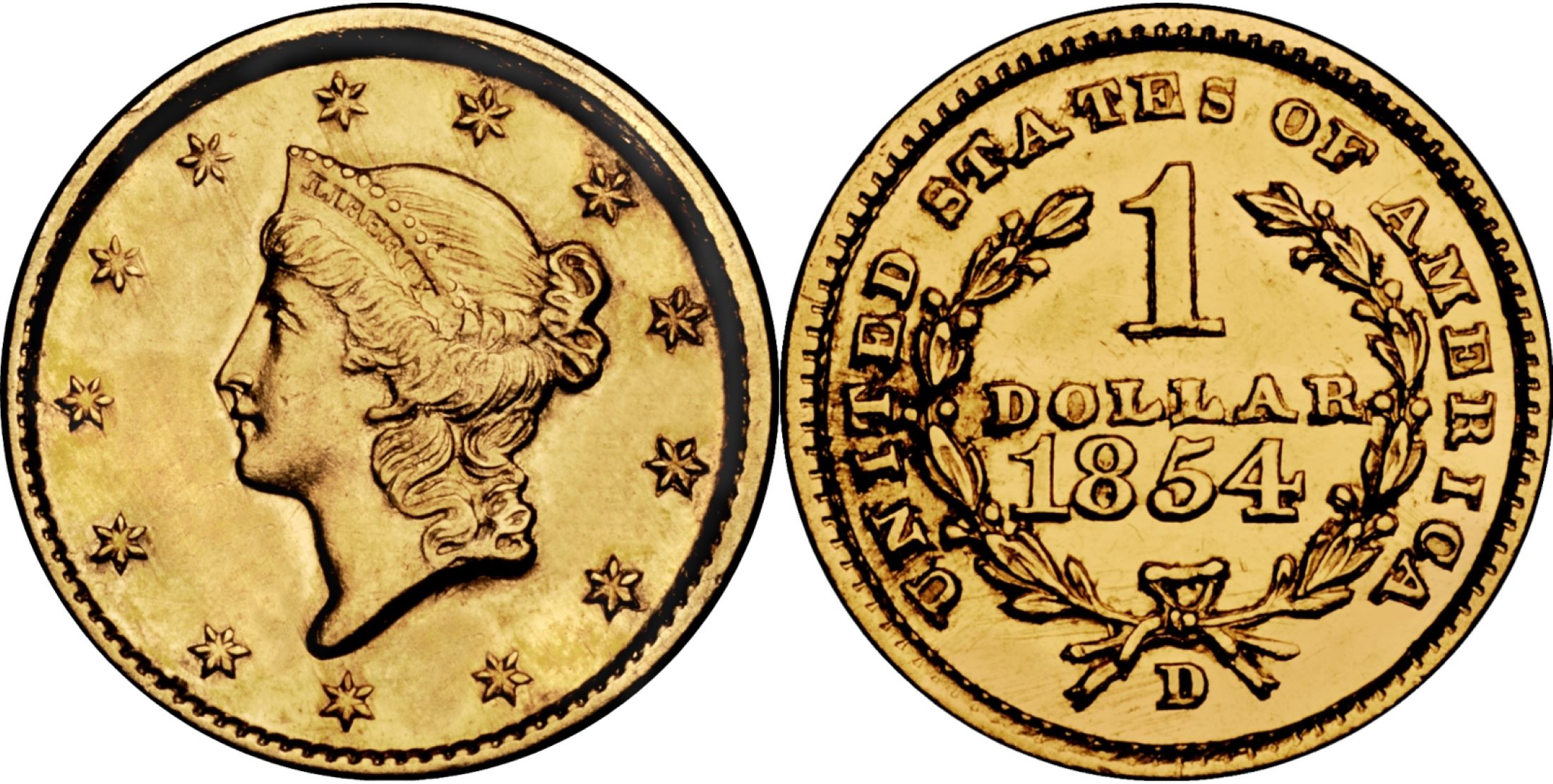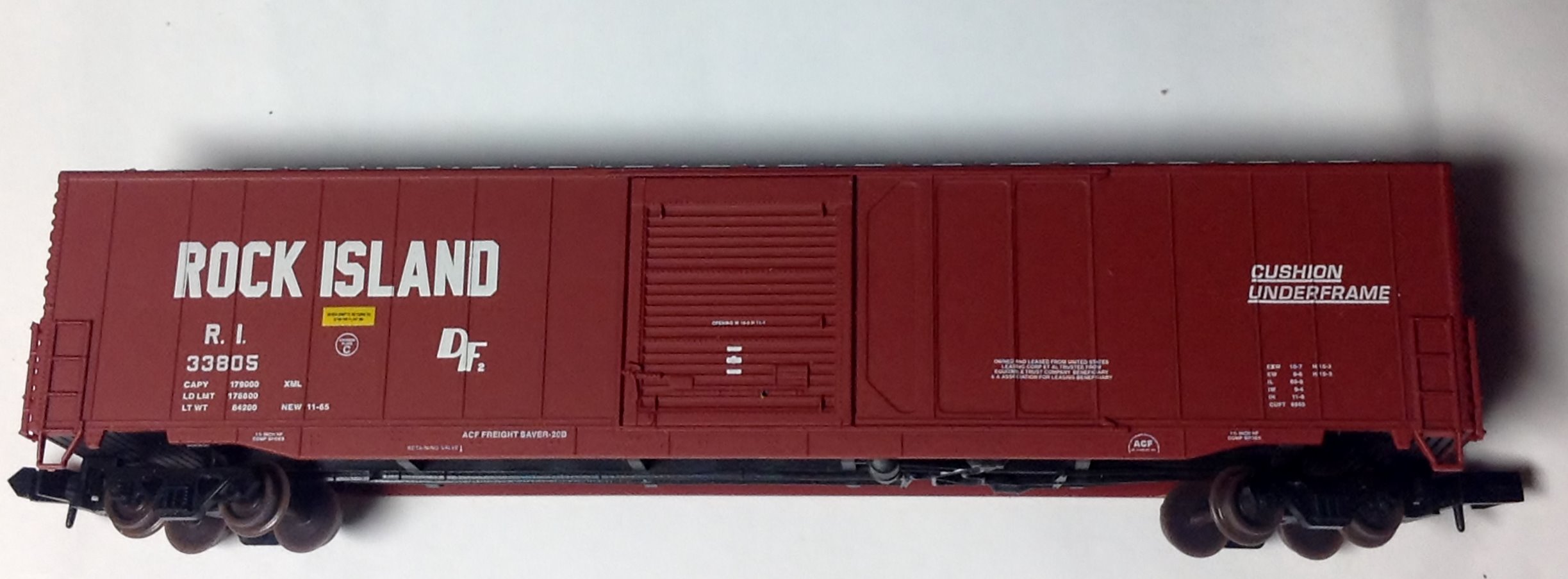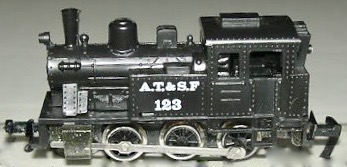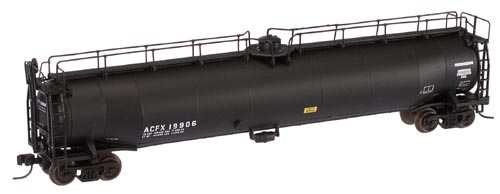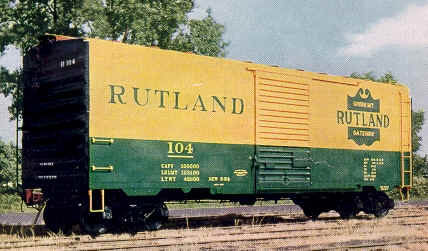Specific Item Information: Special Run made exclusively for Brooklyn Locomotive Works in 2006. Only 100 sets made.
Model Information: This is Micro-Trains first body style. It was introduced in 1972. Its is a model of a Pullman-Standard PS-1 boxcar from circa 1957. Micro-Trains does not market it as a PS-1 so as to allow themselves some latitude so they can use this car to model non-PS prototypes. Hundreds of different releases have used this body style in various paint schemes and road names. They are equipped with 6' sliding doors, either Youngstown (4/5/4 rib pattern) or Superior (7 panels). It is not a model of a "modern" steel boxcar as the length (40 foot) and the roofwalk are more typical of the transition era (1939 - 1957).
In 2019, Micro-Trains started releasing this model with new body-mounted couplers attached to a new underframe.
In 2019, Micro-Trains started releasing this model with new body-mounted couplers attached to a new underframe.
Prototype History: The 40' Boxcar is widely known as one of the most popular freight cars used by railroads as they transitioned from steam to diesel. In particular the Pullman Standard or PS-1 design was one of the most popular and was widely used by North American railroads. These boxcars were built beginning in 1947 and share the same basic design, with certain elements such as door size, door style or roof type varying among the different railroads and production years. When production of these cars ceased in 1963, over 100,000 had been produced.
So just what is a PS-1? Well the simple answer is it is any boxcar built by Pullman Standard from 1947 on. The design changed over the years – sometimes subtly, sometimes for customer request, and sometimes in a larger way. In general, most PS-1’s built from 1947 to 1961 share the same dimensions and basic construction techniques. These cars all had a length of 40′, a height of 10’5″ or 10’6″, welded sides and ends and roof of Pullman’s own design. The greatest variation was in the size and style of doors used. Pullman Standard also offered 50′ and later 60′ boxcars – also with the PS-1 designation.
So just what is a PS-1? Well the simple answer is it is any boxcar built by Pullman Standard from 1947 on. The design changed over the years – sometimes subtly, sometimes for customer request, and sometimes in a larger way. In general, most PS-1’s built from 1947 to 1961 share the same dimensions and basic construction techniques. These cars all had a length of 40′, a height of 10’5″ or 10’6″, welded sides and ends and roof of Pullman’s own design. The greatest variation was in the size and style of doors used. Pullman Standard also offered 50′ and later 60′ boxcars – also with the PS-1 designation.
Road Name History: The L&NE appeared in 1895 from the reorganization of earlier bankrupt lines in the area. The L&NE is parallel to and just northwest of the Lehigh & Hudson River. The line began in the Allentown-Bethlehem area of Pennsylvania, and ran northeast through a corner of New Jersey to Campbell Hall, New York (just west of L&HR’s terminus in Maybrook.) Total mileage was just under 220.
Primary traffic was anthracite and cement with a bit of slate traffic for good measure. Unlike the L&HR, L&NE never developed into much of a bridge carrier but generated much more traffic on line.
The steam fleet included the following wheel arrangements: 0-6-0, 0-8-0 (both standard cab and camelbacks), 2-8-0 (both standard cab and camelbacks), 2-8-2 and 2-10-0. The 0-8-0’s were the last camelbacks built for service in America. In 1949, the Lehigh & New England completely dieselized with Alco FA-1, FB-1 sets and RS-2’s (set up for long hood forward operation.)
By 1960, the anthracite business had all but disappeared and the local cement industry was in a steep decline. Mileage had fallen to 177. The L&NE’s parent company, Lehigh Coal & Navigation Company, saw the writing on the wall. Even though the railroad was still solvent, they applied to abandon it. Jersey Central took over 41 miles of line on the south end and the rest of the Lehigh & New England was abandoned in 1961. L&NE became a paper railroad under CNJ to operate those 41 miles. During the early 70s build up to Conrail, a portion of that remaining line was transferred to Reading. Both segments became part of Conrail in 1976.
Primary traffic was anthracite and cement with a bit of slate traffic for good measure. Unlike the L&HR, L&NE never developed into much of a bridge carrier but generated much more traffic on line.
The steam fleet included the following wheel arrangements: 0-6-0, 0-8-0 (both standard cab and camelbacks), 2-8-0 (both standard cab and camelbacks), 2-8-2 and 2-10-0. The 0-8-0’s were the last camelbacks built for service in America. In 1949, the Lehigh & New England completely dieselized with Alco FA-1, FB-1 sets and RS-2’s (set up for long hood forward operation.)
By 1960, the anthracite business had all but disappeared and the local cement industry was in a steep decline. Mileage had fallen to 177. The L&NE’s parent company, Lehigh Coal & Navigation Company, saw the writing on the wall. Even though the railroad was still solvent, they applied to abandon it. Jersey Central took over 41 miles of line on the south end and the rest of the Lehigh & New England was abandoned in 1961. L&NE became a paper railroad under CNJ to operate those 41 miles. During the early 70s build up to Conrail, a portion of that remaining line was transferred to Reading. Both segments became part of Conrail in 1976.
Brand/Importer Information: Micro-Trains is the brand name used by both Kadee Quality Products and Micro-Trains Line. For a history of the relationship between the brand and the two companies, please consult our Micro-Trains Collector's Guide.
Manufacturer Information:  Micro-Trains Line split off from Kadee Quality Products in 1990. Kadee Quality Products originally got involved in N-Scale by producing a scaled-down version of their successful HO Magne-Matic knuckle coupler system. This coupler was superior to the ubiquitous 'Rapido' style coupler due to two primary factors: superior realistic appearance and the ability to automatically uncouple when stopped over a magnet embedded in a section of track. The success of these couplers in N-Scale quickly translated to the production of trucks, wheels and in 1972 a release of ready-to-run box cars.
Micro-Trains Line split off from Kadee Quality Products in 1990. Kadee Quality Products originally got involved in N-Scale by producing a scaled-down version of their successful HO Magne-Matic knuckle coupler system. This coupler was superior to the ubiquitous 'Rapido' style coupler due to two primary factors: superior realistic appearance and the ability to automatically uncouple when stopped over a magnet embedded in a section of track. The success of these couplers in N-Scale quickly translated to the production of trucks, wheels and in 1972 a release of ready-to-run box cars.
Micro-Trains Line Co. split off from Kadee in 1990 to form a completely independent company. For this reason, products from this company can appear with labels from both enterprises. Due to the nature of production idiosyncrasies and various random factors, the rolling stock from Micro-Trains can have all sorts of interesting variations in both their packaging as well as the products themselves. When acquiring an MTL product it is very important to understand these important production variations that can greatly enhance (or decrease) the value of your purchase.
Please consult our Micro-Trains Collector's Guide

Micro-Trains Line Co. split off from Kadee in 1990 to form a completely independent company. For this reason, products from this company can appear with labels from both enterprises. Due to the nature of production idiosyncrasies and various random factors, the rolling stock from Micro-Trains can have all sorts of interesting variations in both their packaging as well as the products themselves. When acquiring an MTL product it is very important to understand these important production variations that can greatly enhance (or decrease) the value of your purchase.
Please consult our Micro-Trains Collector's Guide
Commissioner Information: Brooklyn Locomotive Works was a hobby shop, specialized in N-scale, located in Manalapan, New Jersey, that also sells on-line. BLW regularly commissions special runs.
The company was founded by Pete Postel who announced that he would retired by end of 2018. His brother Paul should continue the business from his own shop Hogtrainz.com.
Brooklyn Locomotive Works (BLW) released special runs from various manufacturers under its own brand until approx. the mid-1980s. Thereafter the special runs where sold under the manufacturer's name and denoted as special runs for BLW. Hence in this database, we assign the BLW brand in the former case, and the original manufacturer's brand in the latter.
The company was founded by Pete Postel who announced that he would retired by end of 2018. His brother Paul should continue the business from his own shop Hogtrainz.com.
Brooklyn Locomotive Works (BLW) released special runs from various manufacturers under its own brand until approx. the mid-1980s. Thereafter the special runs where sold under the manufacturer's name and denoted as special runs for BLW. Hence in this database, we assign the BLW brand in the former case, and the original manufacturer's brand in the latter.
Item created by: gdm on 2019-12-11 15:37:21
Last edited by: Alain LM on 2020-05-08 04:23:21
If you see errors or missing data in this entry, please feel free to log in and edit it. Anyone with a Gmail account can log in instantly.
Last edited by: Alain LM on 2020-05-08 04:23:21
If you see errors or missing data in this entry, please feel free to log in and edit it. Anyone with a Gmail account can log in instantly.


